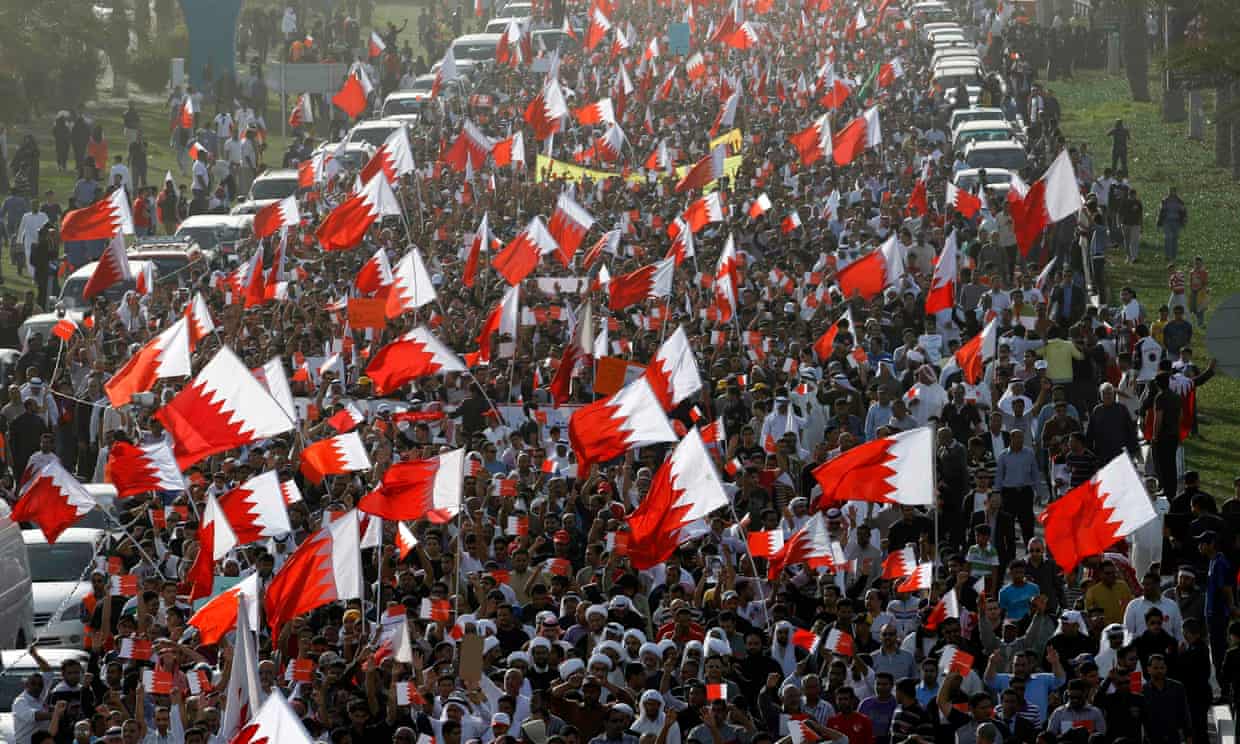24th March 2022
As the world celebrates the International Day for the Right to the Truth concerning Gross Human Rights Violations and for the Dignity of Victims, the ECDHR recognises the fundamental importance of continuously shining a light on the systematic human rights violations in the GCC countries which often go unacknowledged and unpunished.
‘‘The people have a right to the truth as they have a right to life, liberty and the pursuit of happiness.’’ Epictetus (55 – 135)
On this 24th of March, the European Centre for Democracy and Human Rights (ECDHR) joins the world in observing the International Day for the Right to the Truth concerning Gross Human Rights Violations and for the Dignity of Victims. The ECDHR welcomes this recognition of the unique suffering of victims of human rights violations, not only at the time of abuse, but long after as they seek truth, acknowledgement , and justice.
This commemorative day was established in 2010 by the General Assembly of the United Nations, who acknowledged the importance of “promoting the memory of victims of gross and systematic human rights violations and the importance of the right to truth and justice”. The day was set in memory of Archbishop Óscar Arnulfo Romero, who was murdered on the 24th of March 1980 for his constant condemnation of government repression and violation of human rights in El Salvador. Therefore, this international day also seeks to pay tribute to those who have fought relentlessly, sometimes to the death, to ensure the respect of human rights for all.
The right to truth is a concept often invoked in the case of grave human rights abuses and refers to the explicit right of victims and their relatives to know the full truth of what transpired, under which circumstances, and by whose hands. While the concept finds its roots in the 1970-80s in the context of widespread enforced disappearances in Latin American dictatorships of the time, it was explicitly referred to in a 2005 Resolution by the UN Commission on Human Rights who recognised its importance and potential to contribute to ending impunity. It was further explored in a 2006 report by the Office of the High Commissioner for Human Rights, where it was pronounced as an “inalienable and autonomous right”, linked to – but distinct from – the State duty to protect human rights, conduct effective investigations, and ensure remedy and reparations.
Truth after severe human rights violations is paramount. Not only does it enable victims and their relatives to come to terms with their abuse, but it also provides them with access to effective reparations and remedy. When the abuse is clearly documented, the victim will be able to benefit from care and support for their psychological trauma, and the perpetrators may be identified and prosecuted. Truth is equally essential in ending the cycle of impunity by tearing down the all-too-common narratives propagated by the perpetrators or the government, namely that victims, especially human rights defenders, are “terrorists” or “enemies of the state”.
Human rights abuses in the GCC countries are systematic, with widespread allegations of torture, arbitrary detention, and severe repression of the freedom of expression. Human rights defenders (HRDs) as well as national and international organisations, such as the ECDHR, continue to fight to amplify the voices of victims and communicate their experiences to the international community. Through segments like the ‘Profiles in Persecution’, Americans for Democracy and Human Rights in Bahrain helps to counter the silence imposed by the governments of GCC countries and ensure the truth is shared.
However, there remains a deep-seated culture of impunity in the GCC countries. Official bodies charged with investigating allegations of torture by security personnel or authorities have generally been unable or unwilling to properly investigate these cases. For example, in Bahrain, those officials who are prosecuted on charges of torture or ill-treatment received very light sentences and were mainly low-ranking officials. The investigative bodies created in an attempt to provide accountability mechanisms for victims of human rights violations, such as the Ombudsman of the Ministry of Interior and the Special Investigation Unit, appear to be merely a façade and lack any independence from the security bodies they investigate. The majority of officials guilty of torture, including some very public high-level officials, continue to act with impunity.
On this 24th of March, the ECDHR takes the opportunity to reinforce its commitments to ending the cycle of impunity in the GCC countries and fighting for the respect of human rights for all. The ECDHR upholds this commitment to the right to truth every day, and we urge the international community to add their powerful voice to advocate for justice and reparations for victims and to bring perpetrators to justice.
Sources:
General Assembly Resolution 14/7, Proclamation of 24 March as the International Day for the Right to the Truth concerning Gross Human Rights Violations and for the Dignity of Victims, A/HRC/RES/14/7 (23 June 2010)
Naqvi, Y. (2006). The right to the truth in international law: fact or fiction?. International review of the Red Cross, 88(862), 245-273.
UN Commission on Human Rights, Human Rights Resolution 2005/66: Right to the Truth, 20 April 2005, E/CN.4/RES/2005/66
United Nations, Economic and Social Council, Study on the Right to the Truth, Report of the Office of the United Nations High Commissioner for Human Rights, E/CN.4/2006/91 (8 February 2006)
Van Noorloos, M. (2021). A critical reflection on the right to the truth about gross human rights violations. Human Rights Law Review, 21(4), 874-898.

